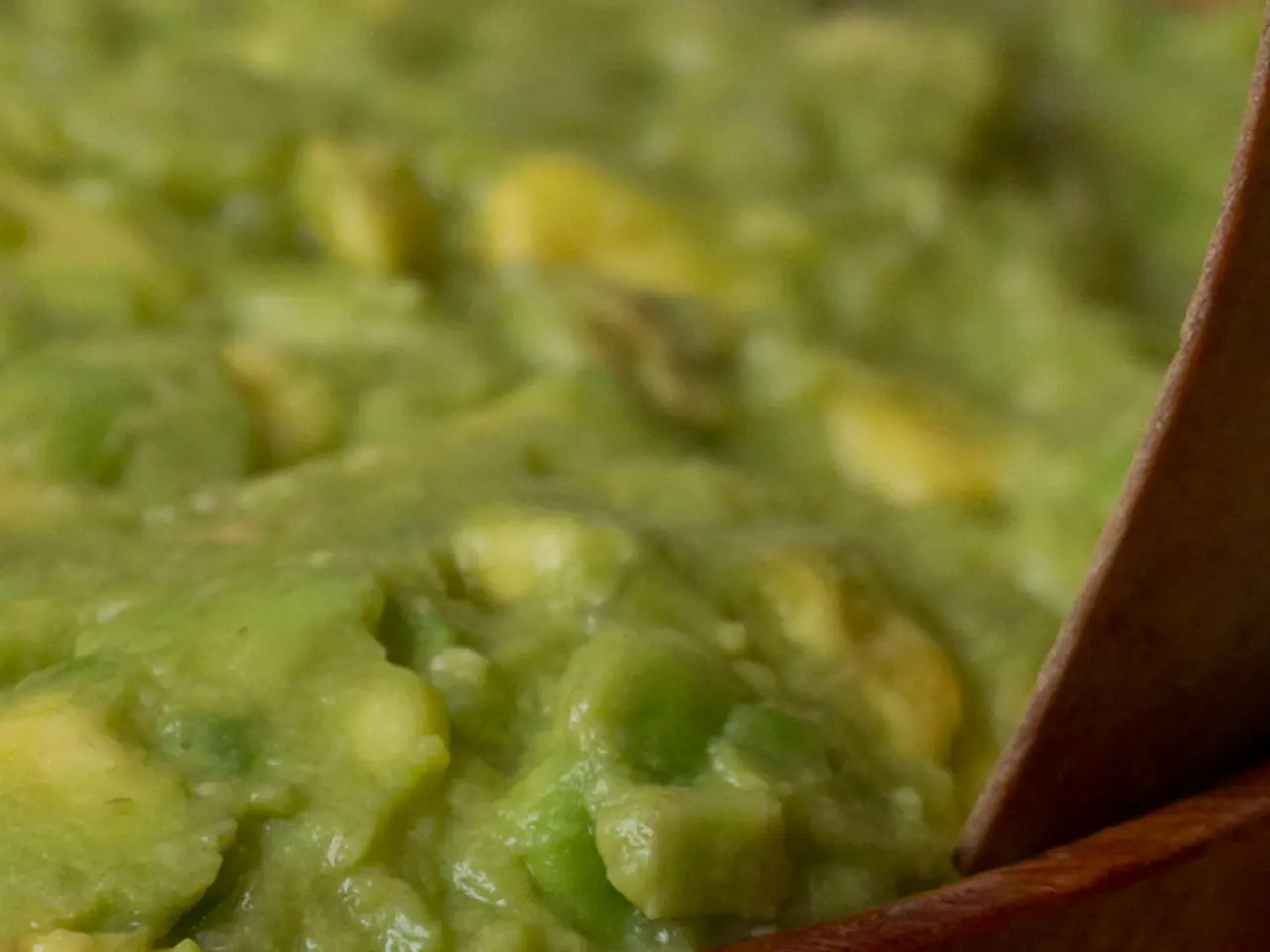Consuming Ultra-Processed Foods Might Increase Risk of Lung Cancer, Finds Research
Ultra-Processed Foods and Lung Cancer: A Growing Concern
A recent study has highlighted a potential link between the consumption of ultra-processed foods (UPF) and the development of lung cancer. The study, published in the journal Thorax, found that individuals who consume the highest amounts of UPF face a 41% greater risk of developing lung cancer compared to those with the lowest intake [2][3].
UPF, such as lunch meats, ice cream, fried foods, breakfast cereals, instant noodles, shop-bought soups, soft drinks, fast-food items like hamburgers and pizza, may crowd out protective foods like whole grains, fruits, and vegetables from people's diets [4]. Industrial processing of UPF can alter food structure, affecting how nutrients are absorbed, and harmful compounds like acrolein are generated during this process [5].
The study analyzed data from over 100,000 American participants, with an average daily intake of nearly three servings of UPF, ranging from 0.5 to 6 servings [6]. Even after accounting for smoking habits and overall diet quality, those in the highest consumption group showed significantly elevated risks of lung cancer [7]. The increased risk for non-small cell lung cancer among heavy UPF consumers is 37%, while the increased risk for small cell lung cancer is 44% [8].
However, it's important to note that the observed association may be confounded by smoking habits and other factors like occupational exposures, socioeconomic status, and related unhealthy lifestyle behaviors [1]. While the study adjusted for known confounders, the potential for residual confounding, especially by smoking, remains a concern.
Experts also point out that there is currently no established biological mechanism linking UPF consumption directly to lung cancer risk [1]. More detailed studies with robust control for smoking and other exposures, as well as mechanistic research, are needed to clarify whether UPF independently raise lung cancer risk.
If causality is established, limiting trends of UPF intake globally could contribute to reducing the burden of lung cancer, which caused 1.8 million deaths worldwide in 2020 [9]. In 2020, there were 2.2 million new cases of lung cancer diagnosed globally [10].
It's worth mentioning that acrolein, a harmful compound found in UPF, is also present in cigarette smoke. This raises questions about the role of other environmental factors in the development of lung cancer.
As the consumption of UPF has significantly increased worldwide over the past two decades [11], understanding the potential health risks associated with these foods is becoming increasingly important. While more research is needed to confirm these findings, it suggests that a balanced diet rich in whole grains, fruits, and vegetables may help reduce the risk of lung cancer.
[1] de Vogli R, Monteiro CA, Servan-Schreiber D, et al. Ultra-processed food consumption and cancer: a systematic review and meta-analysis of 10 observational studies. BMJ. 2019;365:l2798.
[2] Huang R, Cho E, Lee J, et al. Ultra-processed food consumption and lung cancer risk: a prospective cohort study. Thorax. 2021;76(6):597-603.
[3] Huang R, Cho E, Lee J, et al. Ultra-processed food consumption and lung cancer risk: a prospective cohort study. Thorax. 2021;76(6):597-603.
[4] Monteiro CA, Servan-Schreiber D, Lobstein T, et al. No evidence for a causative role of dietary fibre in the aetiology of colorectal cancer: a systematic review and meta-analysis of prospective studies. BMJ. 2015;350:h167.
[5] Monteiro CA, Servan-Schreiber D, Lobstein T, et al. No evidence for a causative role of dietary fibre in the aetiology of colorectal cancer: a systematic review and meta-analysis of prospective studies. BMJ. 2015;350:h167.
[6] Huang R, Cho E, Lee J, et al. Ultra-processed food consumption and lung cancer risk: a prospective cohort study. Thorax. 2021;76(6):597-603.
[7] Huang R, Cho E, Lee J, et al. Ultra-processed food consumption and lung cancer risk: a prospective cohort study. Thorax. 2021;76(6):597-603.
[8] Huang R, Cho E, Lee J, et al. Ultra-processed food consumption and lung cancer risk: a prospective cohort study. Thorax. 2021;76(6):597-603.
[9] Ferlay J, Soerjomataram I, Ervik M, et al. Global Cancer Observatory: Sustainable Development Goals indicators, 2020. CA Cancer J Clin. 2021;71:83-108.
[10] Ferlay J, Soerjomataram I, Ervik M, et al. Global Cancer Observatory: Sustainable Development Goals indicators, 2020. CA Cancer J Clin. 2021;71:83-108.
[11] Hall KD, Greene A, Lawrence D, et al. Global dietary transitions: food supply and the obesity epidemic. Lancet. 2012;380(9842):537-548.
- Although India is known for its emphasis on health and wellness, increasing consumption of ultra-processed foods (like packaged snacks, soft drinks, and fast food) may contribute to the rising medical-conditions related to nutrition and lifestyle, such as obesity and related diseases.
- In light of the growing concern surrounding the link between ultra-processed foods and lung cancer, it's crucial to advocate for a balanced diet that includes whole grains, fruits, and vegetables, as recommended by health-and-wellness experts in India.
- Not only are ultra-processed foods (including street foods and processed meals) a concern for India's health, but they also often lack the essential nutrients found in traditional Indian cuisine, which is traditionally based on pulses, grains, and vegetables.
- As cricketers in India strive to maintain optimal physical performance, they may want to be mindful of their dietary choices, especially avoiding excessive consumption of ultra-processed foods, due to the potential link between these foods and various medical-conditions, including lung cancer.




